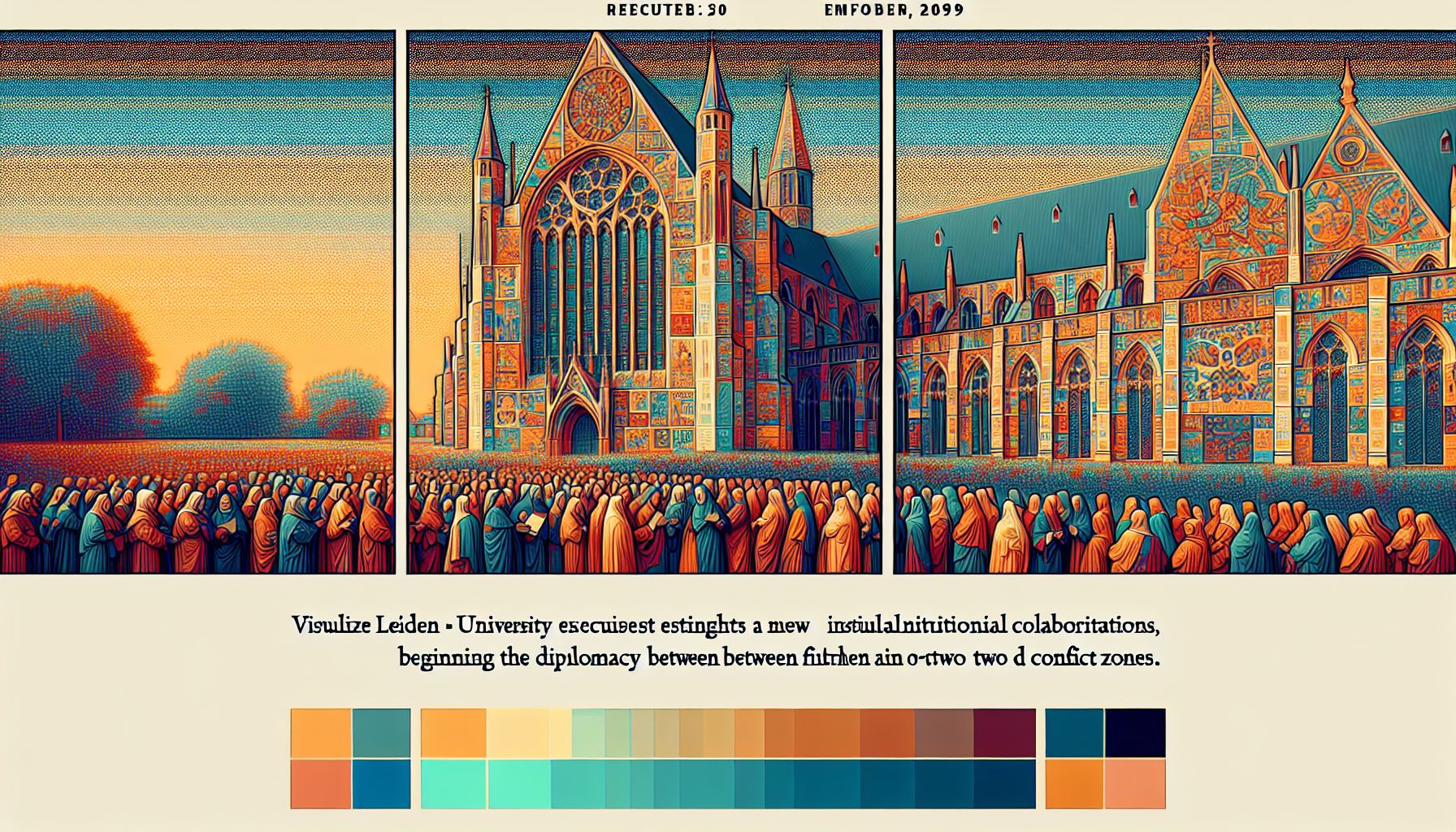Leiden University Launches Ethics Committee to Evaluate Partnerships

Leiden, Wednesday, 3 July 2024.
Leiden University establishes a new ethics committee to assess institutional collaborations, focusing on human rights and conflict zones. The committee, chaired by Professor Joanne van der Leun, aims to develop a framework for ethical partnerships, starting with Israel-Palestine relations.
Purpose and Structure of the Committee
The ‘Committee for Assessing Ethical Aspects of Partnerships’ has been created to ensure that Leiden University’s collaborations align with ethical standards, particularly concerning human rights. The committee, consisting of former and current researchers from various academic disciplines within Leiden University, has a twofold task: to advise on a framework for future assessments and to evaluate current institutional ties, starting with those related to Israel-Palestine.
Leadership and Community Engagement
Professor Joanne van der Leun, a renowned criminologist, will chair the committee. She emphasizes the importance of engaging with the university community, particularly young researchers, to ensure that the committee’s work is inclusive and comprehensive. This engagement aims to foster a culture of ethical awareness and responsibility within the university.
Focus on Conflict Zones
One of the committee’s primary focuses will be on collaborations in areas of serious conflict and potential human rights violations. The initial assessment will concentrate on institutional ties related to Israel-Palestine, reflecting a commitment to scrutinize partnerships that may have ethical implications in volatile regions. This focus is part of a broader strategy to ensure that the university’s collaborations do not inadvertently support or condone human rights abuses.
Framework Development
The committee’s task is not only to evaluate existing partnerships but also to develop a robust framework for future assessments. This framework will prioritize values such as academic freedom and universal human rights, aiming to avoid ad hoc decisions that could compromise the university’s ethical standards. By establishing clear guidelines, the committee seeks to provide a consistent and transparent approach to evaluating institutional collaborations.
Timeline and Expected Outcomes
The committee will meet for the first time before the summer and aims to produce a recommendation by the end of the year. This timeline reflects the urgency and importance of the committee’s work. The expected outcomes include a comprehensive assessment of current partnerships and a well-defined framework for future evaluations. These steps are crucial for ensuring that Leiden University’s collaborations are ethically sound and aligned with its core values.

